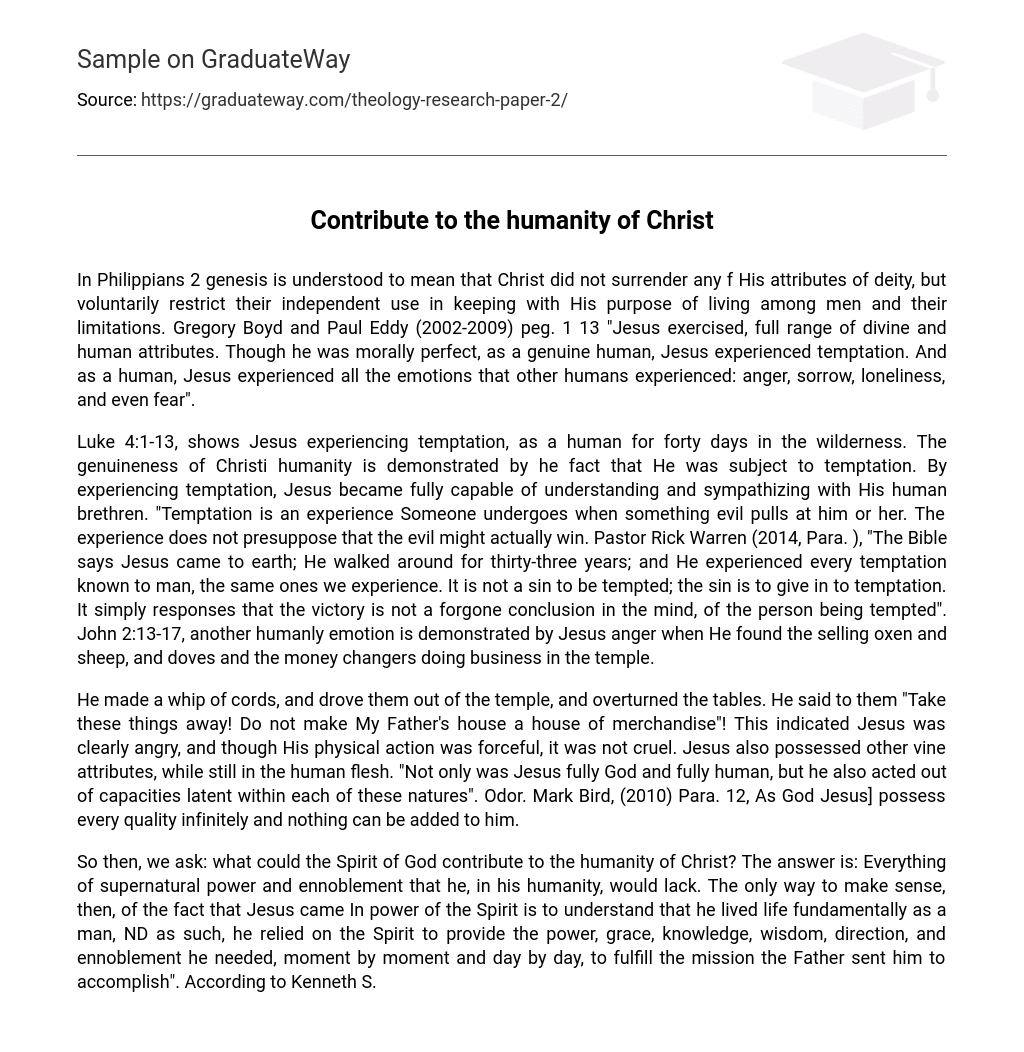In Philippians 2 genesis is understood to mean that Christ did not surrender any f His attributes of deity, but voluntarily restrict their independent use in keeping with His purpose of living among men and their limitations. Gregory Boyd and Paul Eddy (2002-2009) peg. 1 13 “Jesus exercised, full range of divine and human attributes. Though he was morally perfect, as a genuine human, Jesus experienced temptation. And as a human, Jesus experienced all the emotions that other humans experienced: anger, sorrow, loneliness, and even fear”.
Luke 4:1-13, shows Jesus experiencing temptation, as a human for forty days in the wilderness. The genuineness of Christi humanity is demonstrated by he fact that He was subject to temptation. By experiencing temptation, Jesus became fully capable of understanding and sympathizing with His human brethren. “Temptation is an experience Someone undergoes when something evil pulls at him or her. The experience does not presuppose that the evil might actually win. Pastor Rick Warren (2014, Para. ), “The Bible says Jesus came to earth; He walked around for thirty-three years; and He experienced every temptation known to man, the same ones we experience. It is not a sin to be tempted; the sin is to give in to temptation. It simply responses that the victory is not a forgone conclusion in the mind, of the person being tempted”. John 2:13-17, another humanly emotion is demonstrated by Jesus anger when He found the selling oxen and sheep, and doves and the money changers doing business in the temple.
He made a whip of cords, and drove them out of the temple, and overturned the tables. He said to them “Take these things away! Do not make My Father’s house a house of merchandise”! This indicated Jesus was clearly angry, and though His physical action was forceful, it was not cruel. Jesus also possessed other vine attributes, while still in the human flesh. “Not only was Jesus fully God and fully human, but he also acted out of capacities latent within each of these natures”. Odor. Mark Bird, (2010) Para. 12, As God Jesus] possess every quality infinitely and nothing can be added to him.
So then, we ask: what could the Spirit of God contribute to the humanity of Christ? The answer is: Everything of supernatural power and ennoblement that he, in his humanity, would lack. The only way to make sense, then, of the fact that Jesus came In power of the Spirit is to understand that he lived life fundamentally as a man, ND as such, he relied on the Spirit to provide the power, grace, knowledge, wisdom, direction, and ennoblement he needed, moment by moment and day by day, to fulfill the mission the Father sent him to accomplish”. According to Kenneth S.





